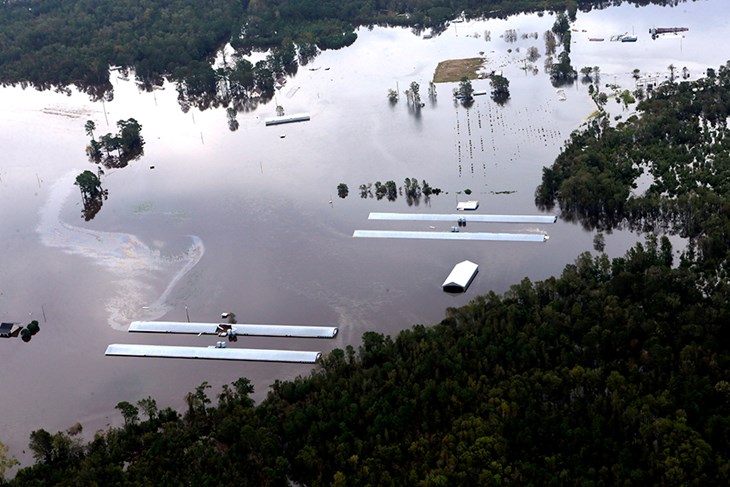Published 11/22/2022
Today, Senator Cory Booker (D-NJ) announced a bill that would deliver a suite of long-overdue reforms to the nation's animal agriculture policy. The bill, called the Industrial Agriculture Accountability Act (IAA), would redirect responsibility for the harms of factory farming where it belongs—on the corporations that profit most from industrial animal agriculture.
The last several years have exposed a glaring lack of responsibility and preparedness by industrial animal agriculture giants in the event of an emergency, such as a public health crisis or a natural disaster. Since 2019, over 60 million poultry birds and 10 million pigs have been culled due to Covid-19 and avian influenza. In some cases, growers and their workers worked long and exhausting hours to clean up the aftermath of the culls, only to be fired without severance pay. Slaughterhouse workers were forced to work without protective equipment and within dangerously close contact of one another during the pandemic, causing at least 269 deaths. Moreover, large meatpackers increased line speeds to dangerous levels, putting workers at greater risk. Additionally, natural disasters such as floods and heat waves have killed massive numbers of confined farmed animals who were unable to escape to safety. Some of these disasters caused unfathomable damage to neighboring communities who were left to bear the burden of the cleanup.

The IAA, which has been endorsed by CIWF, would stop large, wealthy corporations from ignoring these negative externalities for their own gains. The bill would require all high-risk animal feeding operation (AFO) owners to submit annual disaster mitigation reports to the USDA detailing 1) all the potential disasters that could occur on property, including a history of disasters that have occurred on-site, 2) what measures have been taken to prevent disasters, and 3) emergency action plans in case a disaster does occur. The bill also mandates that the corporations be responsible and liable for all costs and negative impacts on contracted farmers, their workers, and neighboring communities related to a disaster, culling event, or disaster prevention. High-risk AFOs would also pay an annual fee to the USDA that would go toward funding the administrative and enforcement capacity of a newly created Office of High-Risk AFO Disaster Mitigation and Enforcement.
In addition, the bill would effectively ban the use of three of the most commonly used cruel culling methods—ventilation shutdown, ventilation shutdown plus, and water-based foam—by banning any operator found to have used these methods from obtaining required inspections for 10 years and issuing a hefty fine of up to $1,000 per animal killed. Since the rule applies to large-size AFOs that house over 2,500 pigs, 30,000 turkeys, or 82,000 chickens, the fine could easily add up to millions of dollars.
Also, the bill would establish a public online database holding both disaster mitigation reports and reports containing details about culling events submitted by AFOs to the USDA. This would allow contracted farmers, workers, and fenceline communities to obtain information about the AFOs activities and enable them to bring operators to court in the event of a violation. All contract growers and their workers would also be covered by whistleblower protections.
Finally, the IAA provides funding for several initiatives, including a grant program for small meat processors to transition to higher welfare slaughter, and increased funding to hire processing inspectors and technical assistance providers.
While no one likes to think about the impacts of a potential disaster, history has shown that the impacts of not preparing for them are far worse. The Industrial Agriculture Accountability Act would help ensure that industry operators avoid preventable disasters and mitigate the effects of unavoidable ones on their animals, workers, and local communities—or pay the price.

